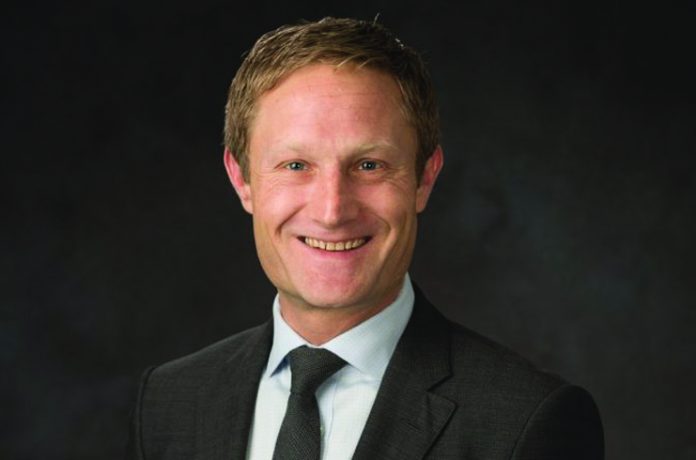
Although he is a trained chef and stills hopes to own and operate his own restaurant one day, Nicolas Graf is currently serving hospitality in a different capacity—as Associate Dean at the New York University Jonathan M. Tisch Center of Hospitality. In this position, he helps prepare the next generation of industry professionals not only in undergraduate and graduate degree programs, but also in adult education classes and a program offered through Yellowbrick to give an overview of the industry and its opportunities for those exploring the field. As he told LODGING, he views the current labor crisis less as a lack of talent than a lack of awareness of the opportunities available in this industry. He hopes to help change this not just by raising awareness of the industry’s versatility among enrolled students at NYU, but also by reaching out to the potential talent to be found among high school and college students, current hospitality employees, and career changers who may be motivated to learn about the work that can be found beyond the front desk.
How did you get your start in the hospitality industry and on your current path?
My path began in Switzerland, which has a dual educational program leading to employment. I began on the apprenticeship track to pursue my dream of being a chef with my own restaurant, but, when I realized it took more than the ability to cook to run a restaurant, I was able to circle back to a university of applied science, which allows apprentices to get back into the more traditional college system.
Luck and timing played a big role in the path that led me to where I am now. I was able to attend École hôtelière de Lausanne Switzerland, the Swiss Hospitality Management School in Lausanne, because the Swiss government was providing almost full tuition for Swiss nationals; and I was able to then pursue an MBA in a brand-new program that students could attend tuition-free in exchange for working part-time.
How did you end up in academia?
I have to say here that I never set out to be an academic. I just wanted to work with this industry because it’s a passion for me and I wanted to make improvements, specifically in the theoretical frameworks being used. This led me to a Virginia Tech Ph.D. program—also tuition-free, thanks to a full scholarship—that enabled me to develop complicated academic frameworks but apply them in a very useful and relevant way to the industry.
Then, with Ph.D. in hand, I took a position at the University of Houston as an assistant professor at its Hilton College, where I remained for two years. I then moved to France at ESSEC Business School as an associate professor and stayed six years, becoming its IMHI programs director and creating a center of excellence for hospitality, food, and travel. After that, I returned to the culinary world with Alain Ducasse to restructure his struggling education and consulting divisions, and then back to Switzerland to be chief academic officer of the Les Roches Global Hospitality Management School.
Why did you take the job at NYU?
I had been fortunate in being able to pursue my education largely on scholarship, but Les Roches was a for-profit institution. Realizing that one of the major issues in higher education today is affordability, I no longer wished to be affiliated with a for-profit hotel school.
Once again, I was lucky; shortly after I quit that position, I was hired by NYU, an institution whose mission is to provide access and opportunity to students, but that also recognizes the critical connection between affordability and making informed decisions. Toward this goal, the University has created a universal scholarship program to lessen the financial burden on those who wish to pursue a hospitality degree, and has also affiliated with Yellowbrick to enable students who have an interest in the industry to make a more informed decision about their next career move and/or whether to pursue further education.
From your vantage point, what are some solutions to the industry’s labor shortage?
One thing I learned at the École hôtelière de Lausanne, where about 70 percent of my class never worked in a hotel after earning their degree, was that their training demonstrated why students should not be working in the field. The fact is, the value proposition for entry-level positions is not very attractive. To change that, we need to do things like improve working conditions—including scheduling that considers work/life balance, and technology to reduce stress and improve efficiency; better provide for employees’ wellness—for example, with the equipment, shoes, and training they need to do their jobs safely; and, finally, compensate them fairly. On this last point, I want to say that although labor costs are increasing faster than revenue, by finding smarter ways to use labor, we can gain efficiencies that would allow us to pay more while keeping labor costs in line with revenue.
What is the NYU partnership with Yellowbrick, and how does it serve the industry?
Just as too many hospitality associates turn away from the field as a result of their early experiences, many just don’t know about the opportunities that exist. At NYU, the undergraduate program provides an overview of hospitality, travel, and tourism, after which students can choose to concentrate in different areas—including revenue management, tourism, operations, etc. At the master’s level, there are programs in hospitality management, travel and tourism management, and event management—all with their own areas of specialty.
But for people who know little or nothing about the industry, the Yellowbrick partnership allows us to better inform a wider audience, including career changers who are looking for different or meaningful work, or high school or college-bound students weighing their career options. This is not a traditional program in the sense of preparing students for specific careers. It’s really an introduction to the industry that we hope will enable students to develop a greater interest in hospitality and make a more informed decision about how to proceed.










